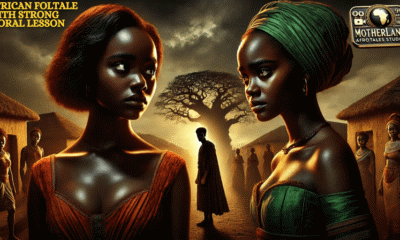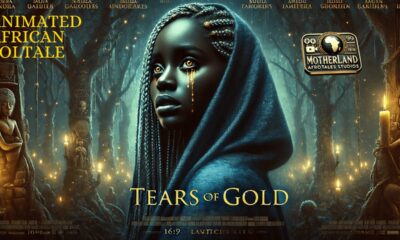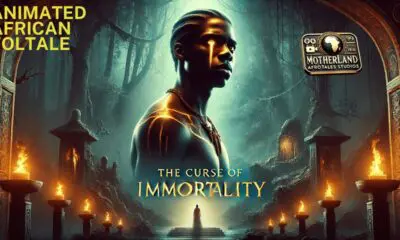World News
Egypt Christians Angry After Clashes Kill 25

Oct 11, 2011 – Egyptian Christians turned their fury against the army on Monday after at least 25 people were killed when troops crushed a protest using tactics that deepened public doubts about the military’s ability to steer Egypt peacefully towards democracy.
In the worst violence since Hosni Mubarak was ousted, armoured vehicles sped into a crowd late on Sunday to break up a protest near Cairo’s state television. Online videos showed mangled bodies. Activists said corpses were crushed by wheels.
Tension between Muslims and minority Coptic Christians has simmered for years but has worsened since the anti-Mubarak revolt, which gave freer rein to Salafist and other strict Islamist groups that the former president had repressed.
The ruling military council called on the interim government to investigate the clashes urgently and said it would take necessary measures to maintain security, state TV said.
But much of the anger from Sunday’s violence targeted the army, accused by politicians from all sides of worsening social tension through a clumsy response to street violence and not giving a clear timetable for handing power to civilians.
“This is a huge crisis that could end in a civil clash. It could end in dire consequences,” presidential hopeful Amr Moussa told a news conference on the violence attended by leading politicians. “An immediate investigation committee must be formed, with immediate results.”
Investors, who Egypt is desperate to attract to plug a deep funding shortfall, sold Egyptian shares, pushing the benchmark index down as much as 5.1 percent at the open. The index closed down 2.3 percent.
“One big problem Egypt faces now is that, increasingly, there is no one in power with the authority and credibility to calm the situation down,” said a senior Western diplomat.
“After (Sunday’s) events, there is an increasing risk that the military will come into conflict with the people. The authority of the prime minister is dangerously eroded. None of the presidential candidates yet has the standing,” he said.
AGITATORS
Christians, who make up 10 percent of Egypt’s roughly 80 million people, took to the streets after blaming Muslim radicals for partially demolishing a church in Aswan province last week. They also demanded the sacking of the province’s governor for failing to protect the building.
Some of the protesters said agitators, whom they described as thugs, sparked violence that prompted the heavy-handed military tactics.
“Why didn’t they do this with the Salafists or the Muslim Brotherhood when they organise protests? This is not my country any more,” said Alfred Younan, a Copt speaking near Cairo’s Coptic Christian hospital where many of the dead were taken.
The violence overshadows Egypt’s first parliamentary poll since Mubarak fell. Voting starts on November 28.
Prime Minister Essam Sharaf, appearing on state TV in the early hours of Monday, said the government’s attempts to build a modern, democratic state were being disrupted by security concerns and talk of plots against democracy.
“We will not surrender to these malicious conspiracies and we will not accept reverting back,” he said before the interim cabinet met for an emergency meeting.
The Health Ministry said 24 people were killed and 322 wounded, including more than 250 who were taken to hospital. State media later put the toll at 25 dead, most of them Copts.
News channel Al Arabiya said up to 36 may have died.
State news agency MENA said investigators visited the scene of the clashes and heard testimony from eyewitnesses and the injured. The general prosecutor gave permission to bury bodies that were identified, MENA said.
Justice Minister Mohamed Abdel Aziz el-Guindy said the investigation and any trials would be handled by military courts. State newspaper Al Ahram said 15 people were being investigated. State media had said dozens were detained.
Streets near the state television building had been largely cleared of debris on Sunday, but smashed and burned vehicles lined streets in the area near the Coptic hospital, which was also the scene of violence overnight.
Church leaders expressed horror at the deaths and asked in a statement for Copts to fast for three days “in order for peace to return to Egypt”.
GROWING FRUSTRATION
The clashes add to the growing frustration of pro-democracy activists with the generals who took over from Mubarak. Many Egyptians suspect the army wants to wield power from behind the scenes even as it hands day-to-day government to civilians.
The ruling army council denies this.
“The army was very violent in dealing with all these demonstrations … and they are being very violent as they know they will not be held accountable and will use such protests to increase repression in Egypt,” said Gamal Eid of the Arab Network For Human Rights Information,
He said the army must leave power as soon as possible.
“We note Prime Minister Sharaf’s call for an investigation, and appeal to all parties to remain calm,” the U.S. embassy said in a statement, expressing condolences to the families.
European Union ministers expressed alarm and said the authorities had a duty to protect religious minorities.
Presidential candidate Moussa told Reuters it was important that the incident did not derail the election timetable.
“I hope that this will not happen. I hope we are going to do as agreed, that there will be election and we will move forward. We don’t want a delay in the process,” he said.
The army has yet to announce a date for a presidential election. A staggered parliamentary vote that lasts till March followed by drawing up a new constitution could push the vote back to the end of 2012 or early 2013, leaving presidential powers in the hands of the military council until then.
Moussa and other presidential hopefuls have demanded a swifter presidential vote on April 1.
Politicians and activists speaking after the overnight violence said the military council and Prime Minister Sharaf were bungling the hoped-for transition to democracy.
“We want the current government to be replaced with a powerful one that can take decisions,” said Shady el-Ghazaly Harb of Egypt’s Revolution Youth Coalition.
Christians complain of discrimination, citing rules that they say make it easier to build a mosque than a church. Tensions have often in the past flared over inter-faith romantic relationships, church building and other issues.
But since Mubarak’s overthrow on February 11, incidents have got violent more swiftly. Christians say no one has been tried yet for the burning of a church in Helwan, south of Cairo, in March, after which 13 people were killed, or for violence in the Cairo suburb of Imbaba on May 7 that cost 15 lives.
Protests erupted elsewhere in Egypt including its second biggest city, Alexandria. Copts say promises by the new rulers to address their concerns and protect them have been ignored.
“The new emerging faction of Islamists and Salafists has created havoc since the January revolution … The problem is the severe reluctance of the cabinet and the authorities to enforce the rule of law and protect the Copts,” Youssef Sidhom, editor in chief of a Orthodox Coptic newspaper, al-Watani.
Reuters








































